Industrial Evolution
Maarten Vanden Eynde
City of a thousand trades, 2007
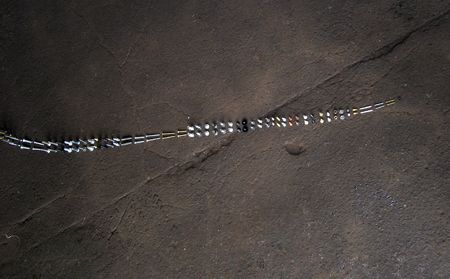
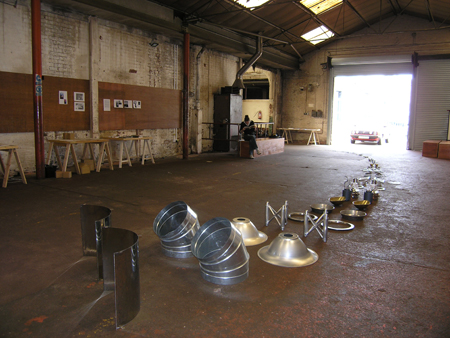
Birmingham played a leading role as front runner for the Industrial Revolution, changing the world beyond recognition and paving the way for the largest population explosion in human history. In 1791, Arthur Young, the writer and commentator on British economic life described Birmingham as “the first manufacturing town in the world.” The Lunar Society, based in Birmingham, was the brain and fuel for the machine that powered the evolution of human civilization. The members of the Lunar Society were Matthew Boulton, Erasmus Darwin, Samuel Galton Junior, James Keir, Joseph Priestley, Josiah Wedgwood, James Watt, John Whitehurst and William Withering. More peripheral characters and correspondents included Sir Richard Arkwright, John Baskerville, Thomas Beddoes, Thomas Day, Richard Lovell Edgeworth, Benjamin Franklin, Thomas Jefferson, Anna Seward, William Small, John Smeaton, Thomas Wedgwood, John Wilkinson, Joseph Wright, James Wyatt, Samuel Wyatt, and member of parliament John Levett.
In 2007 most of the manufacturing companies have moved out off Birmingham to other parts of the world where labor is cheaper. Together with the companies the knowledge to manufacture things is disappearing. In two generations there will be hardly anyone left who has the ability to make something. The Eastside area is being redeveloped and the predominant manufacturing business will be replaced by a service and culture oriented industry. Some huge factories are already transformed in yuppie-flats. I went around visiting every factory of Eastside to excavate the remnants of the manufacturing industry.
Above the Jennens road I only discovered university buildings and brain parks for the IT sector. In the middle there is Millenium Point and huge shopping areas surrounding the Bullring, one of the biggest shopping centers of the world. Everything is imported. Only in the south east, in Digbeth (the historical center and birthplace of Birmingham) I found manufacturing factories. Half of all the buildings is empty already, abandoned, to let. The others are scheduled to leave within a few years, some even in months. It felt like I was just in time to collect a few samples before it’s all gone. Like a contemporary archaeologist I wandered through the area to look for left overs. I asked the factory owners if they wanted to contribute to the collection of manufactured goods being made in Birmingham anno 2007. I wanted to preserve them for future archaeologists to discover. It was now or never.
The reactions were overwhelmingly positive. Somehow the necessity to preserve something of this important period in the history of Birmingham does not need much explanation. Almost 90% of all the manufacturing companies participated and did so by giving samples for free. The only three things I had to buy – because they were too valuable and too big – I got with a huge discount. After 30 seconds of suspicion I was welcomed very friendly and personal life stories came on the table accompanied with a cup of tea.
The stories were very consistent and similar: after having worked in the factory for all their lives, often even for several generations, it was not possible to compete with the cheap imported goods anymore. The rents became too high, hiring more people too expensive. The ground was to centrally located and therefor to valuable. They were simply bought out. Offers which they could not refuse… Or their children were not interested or skilled enough to take over the company. They all felt part of a disappearing tribe, the last generation of traditional workman.
I asked two pieces of each object, referring to Noach’s arch and proving somehow the multiplicity of it, the possibility to be mass produced and re-produced if needed. It takes two to tango… The objects are lined up, from small to big, marching to an uncertain future, destiny unknown.
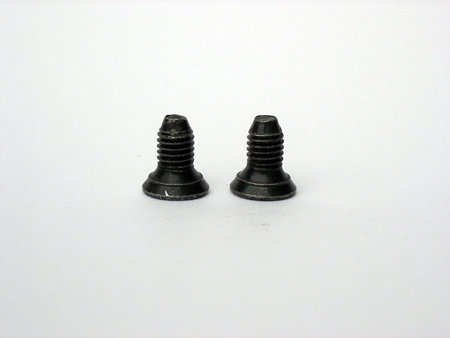
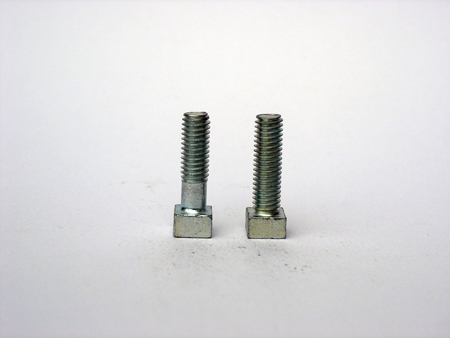
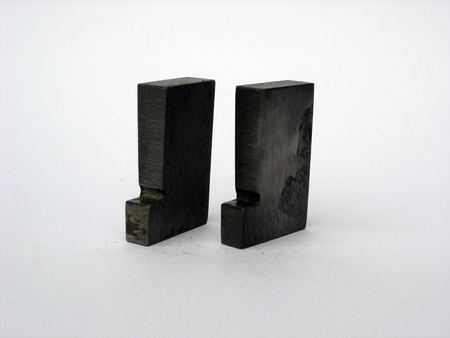
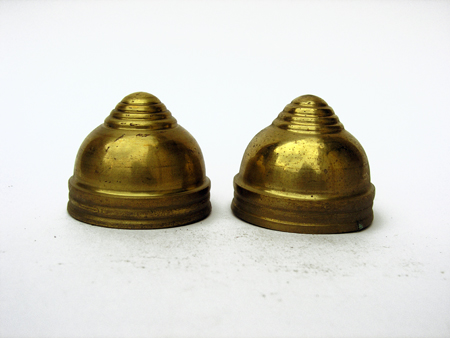
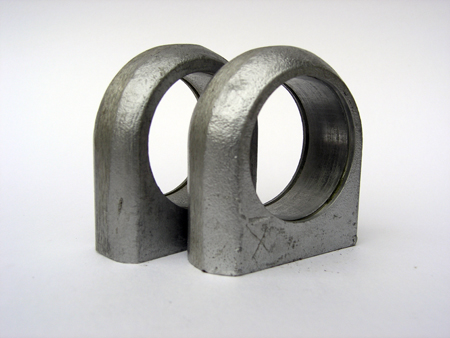
‘I remember Birmingham being epitome of modernity… Birmingham was the future – in a sense it has been the future, but that bit of the future is worn out now and we need a new one’
[Will Alsop, architect]